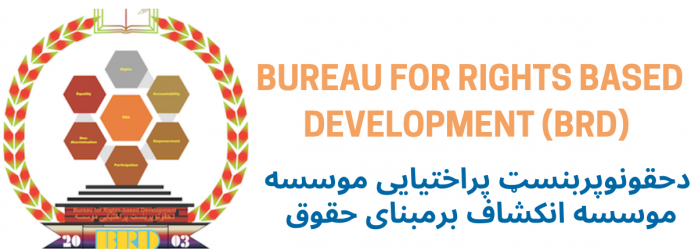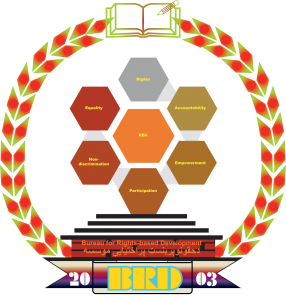BRD Theory of Change
BRD beli eves that poor and marginalised people, regardless of geographical location, race, color, and religion, have potential capacity and knowledge to overcome extreme poverty and enjoy their rights. Sensitizing people to their rights and organizing them around solidarity and campaigning will inspire them to seek right- based alternative to confront and challenge the structural causes of poverty and injustices.
eves that poor and marginalised people, regardless of geographical location, race, color, and religion, have potential capacity and knowledge to overcome extreme poverty and enjoy their rights. Sensitizing people to their rights and organizing them around solidarity and campaigning will inspire them to seek right- based alternative to confront and challenge the structural causes of poverty and injustices.
Our role is to empower people living in poverty by enhancing the capacity of the grassroots and community-based organizations, to promote their rights to overcome injustice and enjoy their deserved rights. HRBA programming is a fundamental pillar of our effort to build a society that is just and free from poverty, where everyone enjoys life with dignity. The concept of our social change theory is based on our understanding that most people are socially and economically poor and marginalized.
We believe social exclusion is an outcome of multiple human rights violations, and it is about exclusion from and unequal access to and control over resources; abilities to claim rights; and control over their own lives. The rich and powerful often deny the rights of the poor and exclude them to get maximum control over productive resources and to b uild more wealth.
uild more wealth.
Our process of social change will be founded on the HRBA principles and our rights-based development programming. We will ensure that our empowerment and awareness building programme engage both people living in poverty and duty bearers to facilitate dialogue. We will identify, analyze and confront power basis that exclude and marginalize women and man, and in general the poor.
We will work in partnership with local CSO partners to harness local knowledge, skills and reach larger constituents; and with other stakeholders and the central level to leverage and influence policies, decisions, and to promote the state’s commitment to human rights and sustainable development, to facilitate setting the ground for sustainable change. We will advance people’s access to information, participation in decision-making and control over resources. We will also monitor, assess social change, document and share lessons to improve our theory of change.

